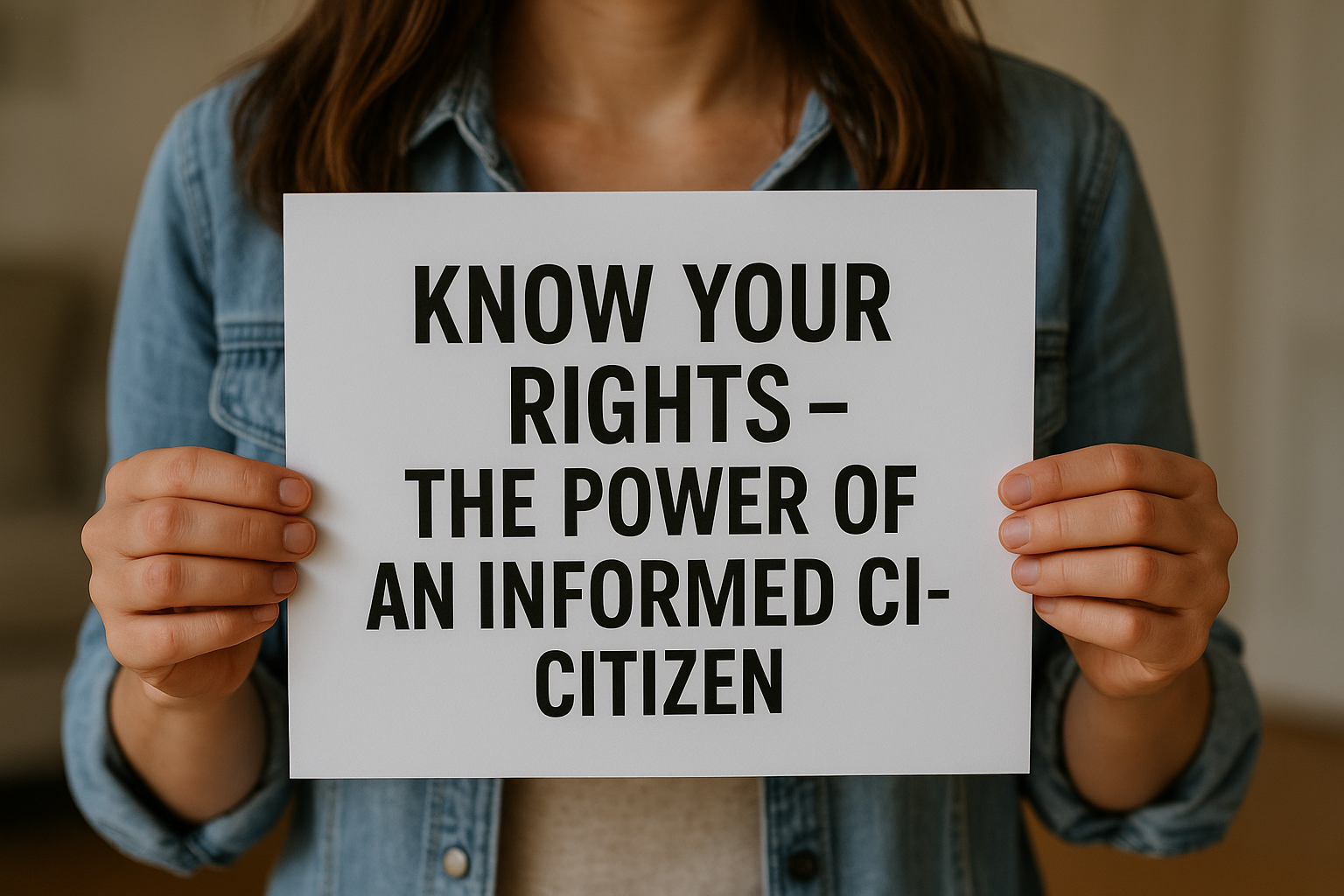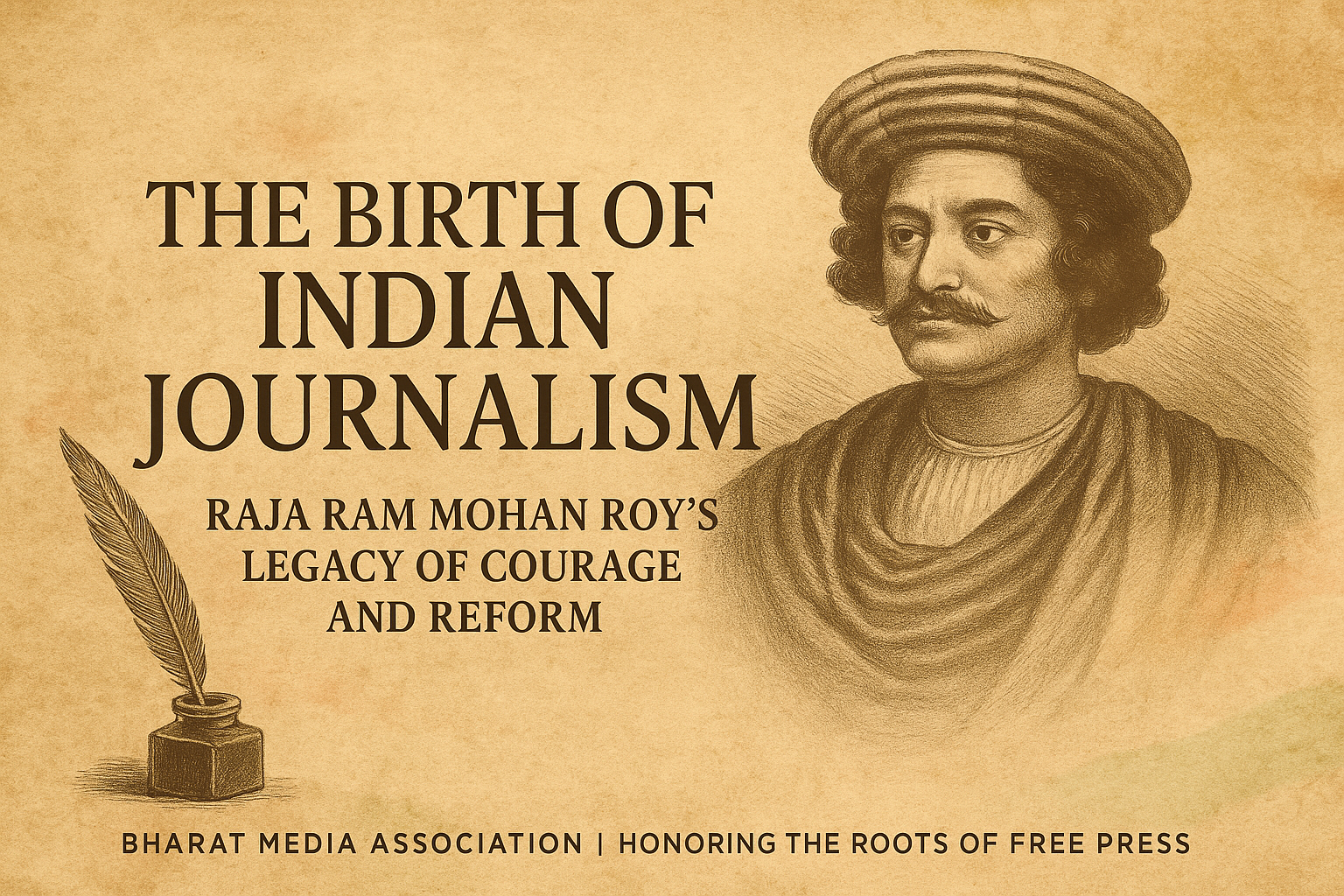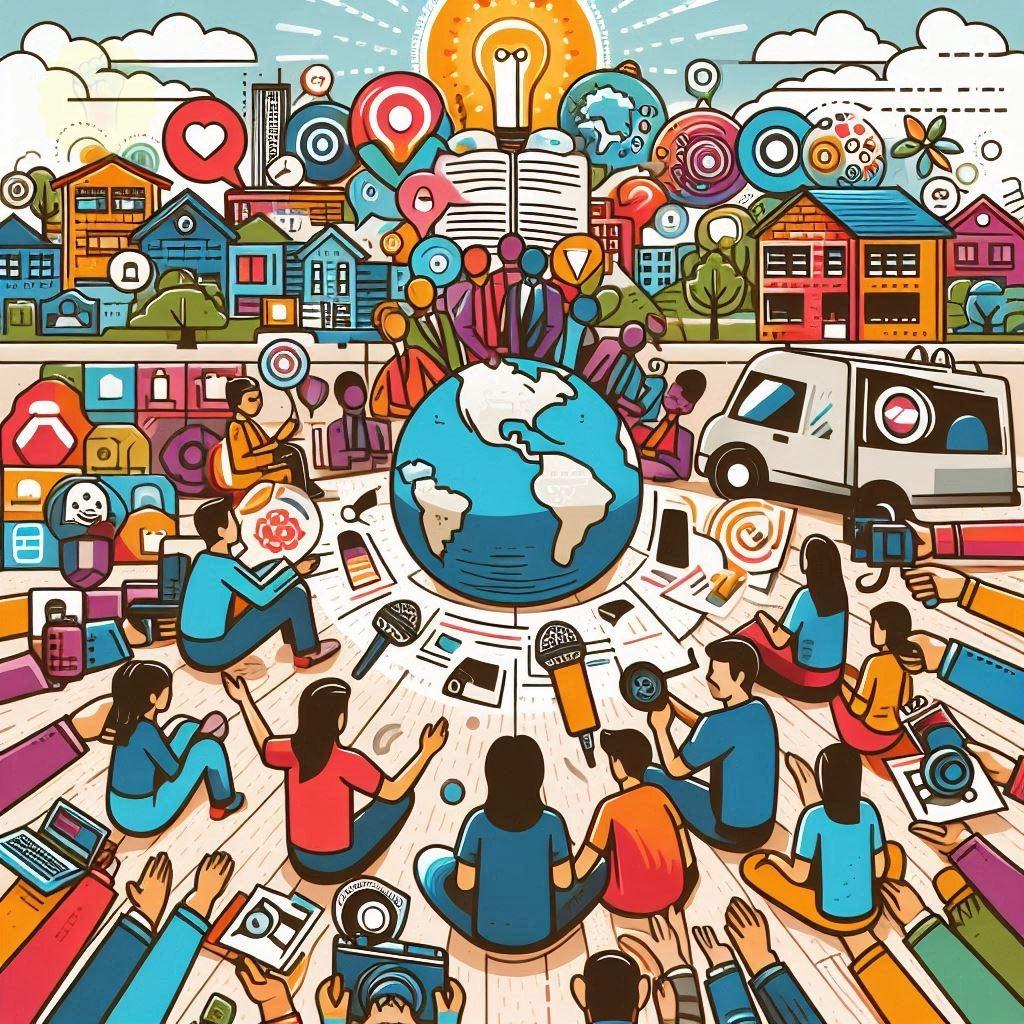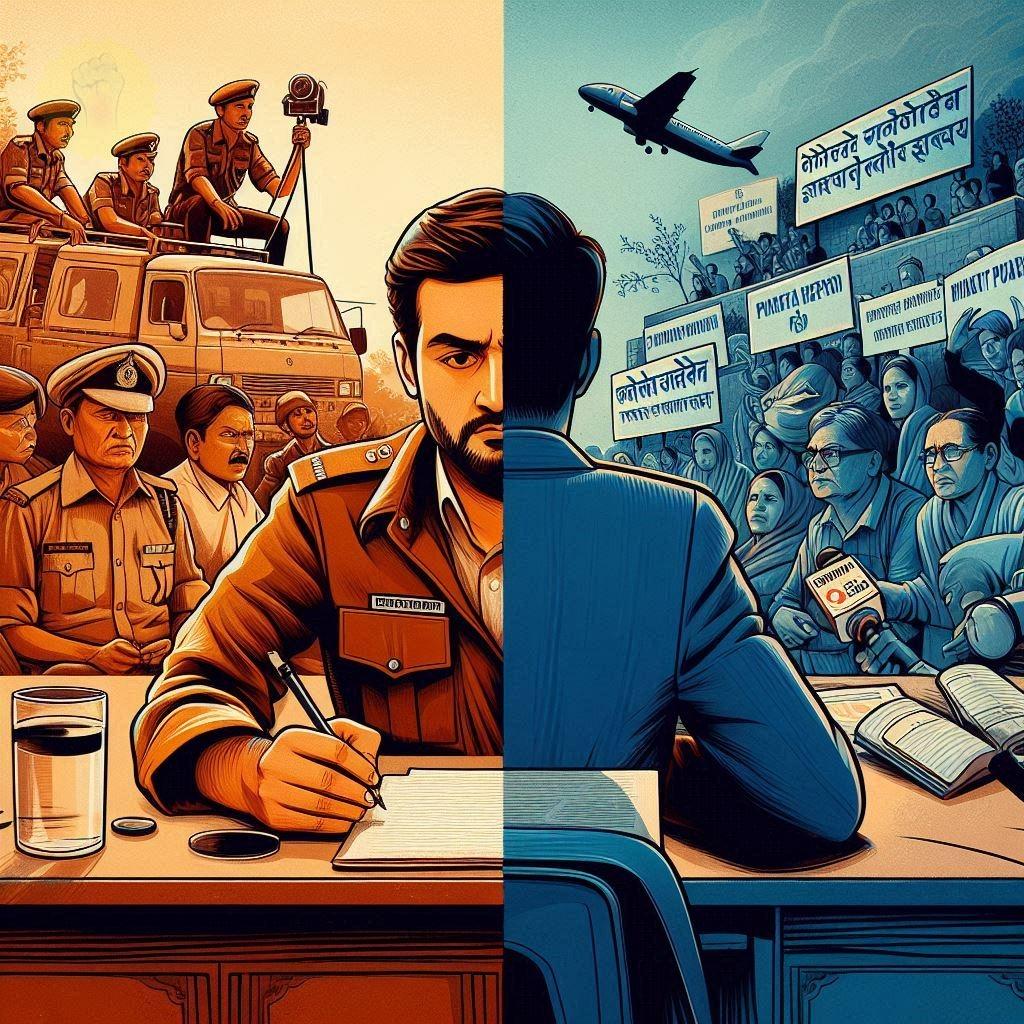What is BMA BUSINESS EDGE?
Your Gateway to Media Entrepreneurship Without Investment
In today’s digital era, Media is no longer just about breaking news. it’s about creating change, building communities, and growing with purpose.
But what if we told you that Media could also be a business opportunity?
That’s exactly what BMA BUSINESS EDGE brings to the table.
BMA BUSINESS EDGE: Empowerment through Media
BMA BUSINESS EDGE is the business growth and networking arm of Bharat Media Association (BMA).
It’s built for people like you.
The local reporter to every professional struggling for recognition in media
The student passionate about change
The housewife with stories to tell
The rural change-maker with no media access
With BMA BUSINESS EDGE, every individual becomes a part of a national movement—armed with information, income, and impact.
What Makes BMA BUSINESS EDGE Unique?
Most media platforms focus on content.
BMA BUSINESS EDGE focuses on people empowering them with:
1. A Platform to Report Stories and Make an Impact
You don’t need to be a big media professional to create big impact.
At BMA BUSINESS EDGE, whether you're a reporter, photographer, video creator, anchor, editor, or content writer you can:
• Highlight powerful stories from your community
• Bring hidden issues to national attention
• Uplift unheard voices and spark real change
• Build your identity while serving society
At BMA BUSINESS EDGE, every media voice matters—and every effort creates a ripple of impact.
2. A Business Model to Earn and Grow
BMA EDGE isn’t just an opportunity—it’s a complete ecosystem for media professionals to thrive.
Whether you’re a reporter, photographer, video editor, anchor, content creator, or storyteller, you can build your media career and income together—all without any upfront investment.
Here’s how you earn with BMA BUSINESS EDGE:
✔ News Reporting & Content Creation
Submit verified reports, news videos, interviews, photo stories, or digital articles—get paid for every impactful submission. Your local voice becomes national news.
✔ Referrals and Onboarding
Invite aspiring media contributors—journalists, content writers, video creators, students, or influencers—to join BMA.
Earn referral incentives and grow your own team of change makers.
✔ Training and Mentorship
Become a certified BMA media trainer in your region.
Conduct workshops, lead awareness sessions, and mentor new media professionals in your area. Earn income while empowering others.
✔ Campaign Participation
Lead or support BMA-led campaigns. RTI awareness, voter education, fact-checking, rural reporting drives, and more.
Gain honorariums, recognition, and grow your public leadership profile as a trusted voice of truth.
Your Role. Your Growth. Your Terms.
BMA BUSINESS EDGE supports freelancers, beginners, experienced pros, and media enthusiasts alike.
Whether you work from a studio in the city or a small village with just a smartphone—you can earn, grow, and impact lives through your media skills.
With BMA BUSINESS EDGE, you’re not just reporting stories—you're building a sustainable career in media with purpose.
A Zero-Investment Business Network for Everyone
Most businesses need:
• Capital
• Infrastructure
• Risk
• Time
BMA BUSINESS EDGE needs none of these.
What you need is:
A mobile phone or internet
A desire to tell the truth
A heart for society
And a mind to grow with BMA
We provide everything else—training, platform, support, tools, and credibility.
Whether You're in a City or a Village – BMA BUSINESS EDGE Works for You
From Delhi to Dindigul, from Ranchi to Rajkot BMA BUSINESS EDGE is a network built to empower people wherever they are.
We believe that truth doesn’t only come from studios. it lives in the streets, fields, towns, and villages of India. And you are the voice we need to bring it forward.
What Will You Achieve with BMA BUSINESS EDGE?
• Identity: Be recognized as a certified media representative
• Income: Earn from multiple streams—reporting, training, referrals
• Influence: Be a local voice with national reach
• Impact: Change lives, empower communities, build awareness
This isn’t just journalism. This is entrepreneurial media with a mission.
Whether you’re a reporter, videographer, editor, anchor, or content creator—at BMA EDGE, you’re not just telling stories.
You’re building impact, income, and a future—on your own terms.
Join the Movement. Be the Media. Own the Change.
If you’ve ever dreamed of being a voice that matters...
If you're a reporter, storyteller, video creator, editor, anchor, or media enthusiast...
If you want to grow without corporate chains...
If you believe in standing for truth and earning through impact...
Then BMA EDGE is built for you.
Your skills. Your stories. Your mission. Your media journey—starts here.Then BMA EDGE is your platform. Your voice. Your business.
Start your journey with BMA BUSINESS EDGE today.
No fees. No risks. Just courage, conviction, and the will to grow.
Because at BMA, we don’t just create reporters.
we empower media professionals to become entrepreneurs.
Whether you're a journalist, content creator, anchor, editor, or filmmaker—you don’t just tell stories; you build a mission-driven media career.
🎯 What is BMA BUSINESS EDGE?
Your Gateway to Media Entrepreneurship Without Investment
In today’s digital era, Media is no longer just about breaking news. it’s about creating change, building communities, and growing with purpose.
But what if we told you that Media could also be a business opportunity?
That’s exactly what BMA BUSINESS EDGE brings to the table.
🚀 BMA BUSINESS EDGE: Empowerment through Media
BMA BUSINESS EDGE is the business growth and networking arm of Bharat Media Association (BMA).
It’s built for people like you.
📍 The local reporter to every professional struggling for recognition in media
📍 The student passionate about change
📍 The housewife with stories to tell
📍 The rural change-maker with no media access
With BMA BUSINESS EDGE, every individual becomes a part of a national movement—armed with information, income, and impact.
🌟 What Makes BMA BUSINESS EDGE Unique?
Most media platforms focus on content.
BMA BUSINESS EDGE focuses on people empowering them with:
📰 1. A Platform to Report Stories and Make an Impact
You don’t need to be a big media professional to create big impact.
At BMA BUSINESS EDGE, whether you're a reporter, photographer, video creator, anchor, editor, or content writer you can:
• Highlight powerful stories from your community
• Bring hidden issues to national attention
• Uplift unheard voices and spark real change
• Build your identity while serving society
At BMA BUSINESS EDGE, every media voice matters—and every effort creates a ripple of impact.
💼 2. A Business Model to Earn and Grow
BMA EDGE isn’t just an opportunity—it’s a complete ecosystem for media professionals to thrive.
Whether you’re a reporter, photographer, video editor, anchor, content creator, or storyteller, you can build your media career and income together—all without any upfront investment.
Here’s how you earn with BMA BUSINESS EDGE:
✔ News Reporting & Content Creation
Submit verified reports, news videos, interviews, photo stories, or digital articles—get paid for every impactful submission. Your local voice becomes national news.
✔ Referrals and Onboarding
Invite aspiring media contributors—journalists, content writers, video creators, students, or influencers—to join BMA.
Earn referral incentives and grow your own team of change makers.
✔ Training and Mentorship
Become a certified BMA media trainer in your region.
Conduct workshops, lead awareness sessions, and mentor new media professionals in your area. Earn income while empowering others.
✔ Campaign Participation
Lead or support BMA-led campaigns. RTI awareness, voter education, fact-checking, rural reporting drives, and more.
Gain honorariums, recognition, and grow your public leadership profile as a trusted voice of truth.
🔗 Your Role. Your Growth. Your Terms.
BMA BUSINESS EDGE supports freelancers, beginners, experienced pros, and media enthusiasts alike.
Whether you work from a studio in the city or a small village with just a smartphone—you can earn, grow, and impact lives through your media skills.
With BMA BUSINESS EDGE, you’re not just reporting stories—you're building a sustainable career in media with purpose.
🌐 A Zero-Investment Business Network for Everyone
Most businesses need:
• Capital 💰
• Infrastructure 🏢
• Risk 🧾
• Time ⏱️
BMA BUSINESS EDGE needs none of these.
What you need is:
✅ A mobile phone or internet
✅ A desire to tell the truth
✅ A heart for society
✅ And a mind to grow with BMA
We provide everything else—training, platform, support, tools, and credibility.
💡 Whether You're in a City or a Village – BMA BUSINESS EDGE Works for You
From Delhi to Dindigul, from Ranchi to Rajkot BMA BUSINESS EDGE is a network built to empower people wherever they are.
We believe that truth doesn’t only come from studios. it lives in the streets, fields, towns, and villages of India. And you are the voice we need to bring it forward.
🌈 What Will You Achieve with BMA BUSINESS EDGE?
• Identity: Be recognized as a certified media representative
• Income: Earn from multiple streams—reporting, training, referrals
• Influence: Be a local voice with national reach
• Impact: Change lives, empower communities, build awareness
This isn’t just journalism. This is entrepreneurial media with a mission.
Whether you’re a reporter, videographer, editor, anchor, or content creator—at BMA EDGE, you’re not just telling stories.
You’re building impact, income, and a future—on your own terms.
🔥 Join the Movement. Be the Media. Own the Change.
If you’ve ever dreamed of being a voice that matters...
If you're a reporter, storyteller, video creator, editor, anchor, or media enthusiast...
If you want to grow without corporate chains...
If you believe in standing for truth and earning through impact...
Then BMA EDGE is built for you.
Your skills. Your stories. Your mission. Your media journey—starts here.Then BMA EDGE is your platform. Your voice. Your business.
📌 Start your journey with BMA BUSINESS EDGE today.
No fees. No risks. Just courage, conviction, and the will to grow.
Because at BMA, we don’t just create reporters.
we empower media professionals to become entrepreneurs.
Whether you're a journalist, content creator, anchor, editor, or filmmaker—you don’t just tell stories; you build a mission-driven media career.














